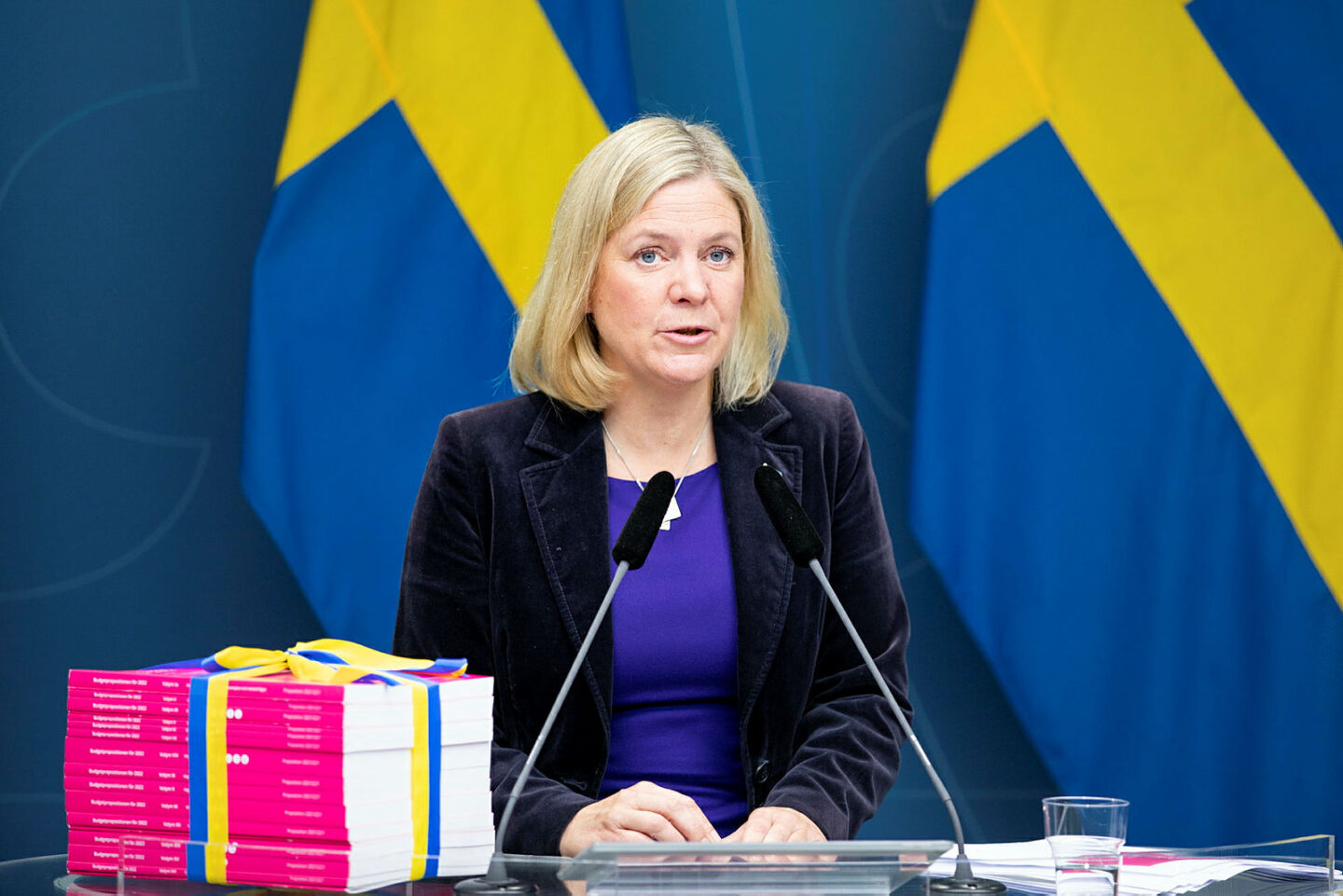This morning, the government presented its proposal for the state budget for 2022. It is the last budget bill before the next parliamentary election. SFS has read the budget and summarizes here how it affects the students.
Adjustment study support
In the autumn of 2020, the Confederation of Swedish Enterprise and the trade union organization PTK concluded an agreement which, among other things, includes a new parallel public student grant for adjustment. The Government has commissioned an investigation into how the new adjustment study support is to be designed, and the inquiry's proposal has until recently been out for consultation. Even before the budget bill was presented, the government had announced its intention to proceed with the proposal, so in the strict sense it is not news.
The government intends to finance the new adjustment study support by raising the interest rate on student loans for all borrowers, including those who have already completed their education. SFS and many other players, not least SACO and TCO (which includes all PTK members) have opposed the proposal to raise interest rates.
In the budget bill, it is nevertheless clear that CSN will be commissioned to investigate how this can be implemented. A proposal will then be presented in the Budget Bill 2023, which thus falls after the next parliamentary election. Therefore, it is not impossible that the issue will be raised later in the election campaign by parties that want to pick political points from academic voters.
Accessibility
A positive news is two investments in accessibility. One is an increase of SEK 7 million for special educational support. The increase reflects that the number of students in need of such support has increased from 12 students in 000 to 2015 students in 23.
The second is an increased opportunity for the visually impaired to write an adapted university entrance examination. As a result, two test sessions a year will also be offered for the visually impaired.
Work-based training
The lack of places for Work-based Education (VFU) is often highlighted as an obstacle to educating more people for the shortage strengths in care and school. The budget includes an investment with increased compensation for care actors who receive VFU students. In total, this is almost SEK 3 billion to support regions and municipalities in their work with competence development and competence supply in health and medical care, but it is only part of the sum that goes to VFU. The investment takes place within expenditure area 9 Health care, medical care and social care, and thus does not burden the educational part of the budget.
The initiative is combined with an assignment to the University Chancellor's Office to coordinate VFU within the care professions.
SFS is positive that the opportunities for VFU are strengthened and believes that it is good with increased coordination. However, it is a shortcoming that the assignment is limited to nursing education. The teacher educations also need strengthened opportunities for VFU. SFS had wanted the government to take a clearer holistic approach to VFU so that all educations were included.
Abbreviated KPU
There has long been an ambition for higher education institutions to train more teachers. More students are needed in teacher education and a larger proportion need to be able to complete their studies.
The January agreement contained a number of points regarding teacher education and several reforms were gathered in the inquiry Increased quality in teacher education and more teachers in the school. One of the proposals was to introduce a shortened Supplementary Pedagogical Education (KPU) for people with a previous degree who want to retrain as a teacher. The KPU is currently between three and four semesters, but the idea was to shorten it to two semesters.
When the proposal was sent out for consultation in 2021, it received a lot of criticism from both the teachers' unions and the higher education sector. Many believe that it erodes the value of a teacher's degree, and that it is impossible for students to learn enough in such a short time. Despite the fact that the government is no longer bound by the January agreement, the government announces in the budget bill that they will proceed with the proposal through an initial trial operation.
Diverse
UKÄ is tasked with coordinating the higher education institutions' work to meet the changing demand for higher education as a result of the corona pandemic.
The budget contains several changes that were announced earlier. Among other things, the government will increase funding for research and education at the doctoral level, something that was announced in the government's research bill at the end of 2020.
But the budget lacks several important reforms. The allocation to student unions, for example, will be reduced from a total of SEK 60 million in 2021 to SEK 55 million in 2022. A year ago, the government increased the allocations to student unions by approximately SEK 25 million. It was a much needed addition. Unfortunately, SEK 5 million was only a temporary increase. As early as 2016, UKÄ made the assessment that the student unions were underfunded and that the grant would need to be increased to just over SEK 100 million for the student influence to have long-term conditions.
Another issue that shines with its absence is about the students who do not get a job after graduation. Most students are outside the unemployment insurance fund and during the corona pandemic it became extra clear that many students are completely without financial protection when the labor market became tougher. During the past term of office, the government has had reforms of the unemployment insurance fund investigated. SFS as well as TCO and COAT has said that a degree condition is needed for students. The budget bill states that reforms in the unemployment insurance fund area are currently being prepared within the Government Offices. There is thus no budget for such a reform until 2022, but it could be relevant later.
